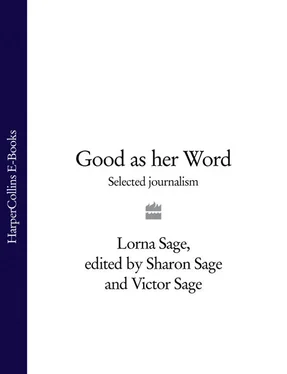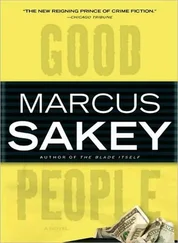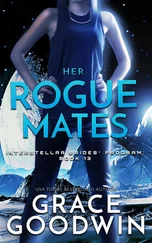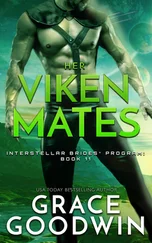Villette by Charlotte Brontë
When two melt into one, TLS 22 February 1980
Sexuality and Feminism in Shelley by Nathaniel Brown
A Scribbler comes of age, TLS 23 January 1981
Lord Byron: The Complete Poetical Works Jerome J. McGann (ed.)
Weaving, deceiving and indecision, TLS 5 March 1982
Heroines and Hysterics by Mary R. Lefkowitz
Links in a mystic chain, Observer 23 May 1982
Lull and Bruno by Frances Yates
Ravishment related, TLS 24 December 1982
The Rapes of Lucretia by Ian Donaldson
From our spot of time, TLS 9 December 1988 Review of several books on Wordsworth including
Wordsworth’s Revisionary Aesthetics by Theresa M. Kelley
Dorothy Wordsworth and Romanticism by Susan M. Levin
Peace with a vengeance, Observer 21 November 1993
Witness Against the Beast: William Blake and the Moral Law by E. P. Thompson
V CRITICAL TRADITION
The gay protagonist, Observer 20 Apri1 1980
The Homosexual as Hero in Contemporary Fiction by Stephen Adams
Seminal semantics, Observer 10 January 1982
Dissemination by Jacques Derrida
Men against women, Observer 19 December 1982
The Rape of Clarissa by Terry Eagleton
Cavalier and roundhead, Observer 24 August 1986
Essays on Shakespeare by William Empson
Valuation in Criticism and Other Essays by F. R. Leavis
TLS 14 April 1989
Harold Bloom: Poetics of Influence John Hollander (ed.)
Oops, a lexical leak, Observer 20 March 1994
In the Reading Gaol by Valentine Cunningham
The First Bacchante, LRB 29 April 1999
The Ground Beneath Her Feet by Salman Rushdie
A Simpler, More Physical Kind of Empathy, LRB September 1999
West of the Sun and The Wind-Up Bird Chronicle by Haruki Murakami
VI ITALY
Fighting Fascists in bed, Observer Magazine 18 June 1978
Italian feminists
Displaced persons, Observer 13 July 1980
Flight From Torregreca: Strangers and Pilgrims by Anne Cornelison
Our Lady of the Accident, Observer Magazine 23 November 1980
The shrine of the Madonna of Montenero
Unholy ecstasies, Observer 9 February 1986
Immodest Acts: The Life of a Lesbian Nun in Renaissance Italy by Judith C. Brown
Holy Anorexia by Rudolph M. Bell
The vegetable paradiso, TLS 26 September 1986
Sotto il sole giaguaro by ltalo Calvino
Man who put the cult in occultism, Observer 1 October 1989
Interview with Umberto Eco
From the mind’s balcony, TLS 5 October 1990
La strada di San Giovanni by Italo Calvino
Calvino and the Age of Neorealism: Fables of Estrangement by Lucia Re
Freedom fighter, Vogue November 1992
Interview with Oriana Fallaci
On the seas of story, TLS 7 October 1994
‘L’isola del giorno prima by Umberto Eco
Signs of possession, TLS 19 January 2001
Out of Florence: From the World of San Francesco di Paola by Harry Brewster
About the Author
Also by the Author
Copyright
About the Publisher
LIKE CERTAIN PHOTOGRAPHS, WHICH hint at the gap between themselves and their future, posthumous books often have a slightly thin, accidental irony about them. This effect depends on how much they are designed to render their author’s intentions, how narrowly those intentions are inscribed in the book’s form: the stricter the author’s plan, the more the unfinished nature of the text becomes an issue. Here, there are no ghostly plans left on the desk, nothing was left unfinished. Instead, the work itself – perhaps a million and a half words written over thirty years – is just too vivid and alive to be left merely dispersed. What strikes us now, having made our selection, is how intimate a portrait of a mind and personality it provides, and how unexpectedly fresh, how new, that portrait is. As Lorna puts it in ‘Death of the Author’, her unflinching tribute to her friend Angela Carter: ‘Nothing stays, endings are final, which is why they are also beginnings’.
We have selected Lorna’s journalism to display the sheer range and diversity of her writing. During the seventies and eighties, while making her reputation as a contemporary fiction-reviewer, Lorna was also writing in many of the other newspaper and magazine genres. From the days of The New Review in the early 1970s under Ian Hamilton, she continued this diverse practice all her working life: profiles, short notices, interviews, multiple book reviews, essayistic pieces and, more latterly, obituaries. In the late 1970s, she started writing for the TLS , a long-time ‘home’ (branching out briefly into the New Statesman ), and settled at the Observer , with Terry Kilmartin, under whose subtle tutelage she learned the tricks of the trade. In the last years, she wrote for the Independent , the London Review of Books and the New York Review of Books .
In a late essay called ‘Living on Writing’ from 1998, Lorna rebels against what she calls a ‘conspiracy of reflexiveness’ in literary journalism:
Barthes’s famous saying went: ‘The birth of the reader must be at the cost of the death of the Author’. But the Author’s death has led to the birth of endless lower-case authors. If you want to speak with authority as a reader, in other words, you do it first by saying that you are a writer. I have always preferred to be a hack, it seems less of a mystification.
‘Hack’ is a theatrical double-take: Lorna dressed up in her hack persona to create an outside position for herself, from which she was able to concentrate on the work of other people. She thought of herself as a correspondent, sending in urgent bulletins from the front line of reading, not a ‘lower-case writer’.
The urgency of her dialogue with books is one of the distinctive aspects of her voice as a reviewer. She liked the commitment deadlines forced. She also increasingly wrote for money, needed to work, and was proud of the way her pen could supplement her income. Lorna began as an instinctive reader (voracious, indiscriminate) and this trait never left her throughout her life: during the fine contempt of adolescence, the prentice years of scholarship in the Renaissance and seventeenth century, the later years of teaching and constant reviewing, and even finally the last, hand-over-fist period in which she started to edit and write books herself, the curiosity, the primary thrill of the reader, never left her – that what she had in her hand was new; even Don Quixote felt to her passionately curious eyes like a tract of snow that no one else had walked upon. She was able rapidly to read one book after another, without pauses for assimilation, ritual movements or changes of place. Her attention was absolute. She did not appear to digest books at all. She read like this late into the night and began again early in the morning: she simply picked up the next volume, whether it was the Corpus Hermeticum or Tarzan of the Apes , propped it in front of her, her thin, long-nailed thumb creasing down the top three inches as she turned the page, and sped away in a trance of rapid eye-movement, dog-earing the leaves as she went whenever something was memorable. When laid aside, paperbacks, in particular, always had a subtly pot-bellied aspect, as if somehow they had more in them: the persistent creasing at the top caused their pages to bell out slightly. They looked as if they had been filled with reading.
Читать дальше












